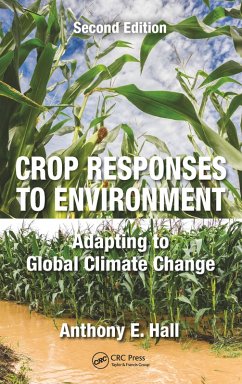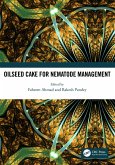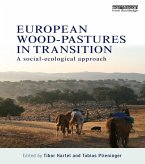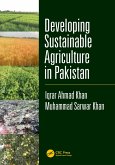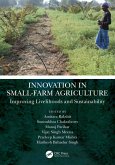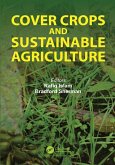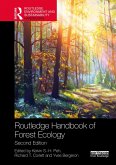Anthony E. Hall
Crop Responses to Environment (eBook, ePUB)
Adapting to Global Climate Change, Second Edition
48,95 €
48,95 €
inkl. MwSt.
Sofort per Download lieferbar

24 °P sammeln
48,95 €
Als Download kaufen

48,95 €
inkl. MwSt.
Sofort per Download lieferbar

24 °P sammeln
Jetzt verschenken
Alle Infos zum eBook verschenken
48,95 €
inkl. MwSt.
Sofort per Download lieferbar
Alle Infos zum eBook verschenken

24 °P sammeln
Anthony E. Hall
Crop Responses to Environment (eBook, ePUB)
Adapting to Global Climate Change, Second Edition
- Format: ePub
- Merkliste
- Auf die Merkliste
- Bewerten Bewerten
- Teilen
- Produkt teilen
- Produkterinnerung
- Produkterinnerung

Bitte loggen Sie sich zunächst in Ihr Kundenkonto ein oder registrieren Sie sich bei
bücher.de, um das eBook-Abo tolino select nutzen zu können.
Hier können Sie sich einloggen
Hier können Sie sich einloggen
Sie sind bereits eingeloggt. Klicken Sie auf 2. tolino select Abo, um fortzufahren.

Bitte loggen Sie sich zunächst in Ihr Kundenkonto ein oder registrieren Sie sich bei bücher.de, um das eBook-Abo tolino select nutzen zu können.
Following in the tradition of its predecessor, this second edition describes aspects of crop responses to environment that are particularly relevant to the development of improved crop cultivars and management methods on a global scale. It emphasizes principles and theories concerning plant responses to the environment for plants in natural as well as agricultural systems. The new edition contains more comprehensive material, an improved writing style, and places emphasis on crop adaptation to global climate change.
- Geräte: eReader
- mit Kopierschutz
- eBook Hilfe
- Größe: 9.05MB
Andere Kunden interessierten sich auch für
![Oilseed Cake for Nematode Management (eBook, ePUB) Oilseed Cake for Nematode Management (eBook, ePUB)]() Oilseed Cake for Nematode Management (eBook, ePUB)52,95 €
Oilseed Cake for Nematode Management (eBook, ePUB)52,95 €![Drones and Geographical Information Technologies in Agroecology and Organic Farming (eBook, ePUB) Drones and Geographical Information Technologies in Agroecology and Organic Farming (eBook, ePUB)]() Drones and Geographical Information Technologies in Agroecology and Organic Farming (eBook, ePUB)0,00 €
Drones and Geographical Information Technologies in Agroecology and Organic Farming (eBook, ePUB)0,00 €![European Wood-pastures in Transition (eBook, ePUB) European Wood-pastures in Transition (eBook, ePUB)]() European Wood-pastures in Transition (eBook, ePUB)50,95 €
European Wood-pastures in Transition (eBook, ePUB)50,95 €![Developing Sustainable Agriculture in Pakistan (eBook, ePUB) Developing Sustainable Agriculture in Pakistan (eBook, ePUB)]() Iqrar Ahmad KhanDeveloping Sustainable Agriculture in Pakistan (eBook, ePUB)48,95 €
Iqrar Ahmad KhanDeveloping Sustainable Agriculture in Pakistan (eBook, ePUB)48,95 €![Innovation in Small-Farm Agriculture (eBook, ePUB) Innovation in Small-Farm Agriculture (eBook, ePUB)]() Innovation in Small-Farm Agriculture (eBook, ePUB)51,95 €
Innovation in Small-Farm Agriculture (eBook, ePUB)51,95 €![Cover Crops and Sustainable Agriculture (eBook, ePUB) Cover Crops and Sustainable Agriculture (eBook, ePUB)]() Cover Crops and Sustainable Agriculture (eBook, ePUB)56,95 €
Cover Crops and Sustainable Agriculture (eBook, ePUB)56,95 €![Routledge Handbook of Forest Ecology (eBook, ePUB) Routledge Handbook of Forest Ecology (eBook, ePUB)]() Routledge Handbook of Forest Ecology (eBook, ePUB)45,95 €
Routledge Handbook of Forest Ecology (eBook, ePUB)45,95 €-
-
-
Following in the tradition of its predecessor, this second edition describes aspects of crop responses to environment that are particularly relevant to the development of improved crop cultivars and management methods on a global scale. It emphasizes principles and theories concerning plant responses to the environment for plants in natural as well as agricultural systems. The new edition contains more comprehensive material, an improved writing style, and places emphasis on crop adaptation to global climate change.
Dieser Download kann aus rechtlichen Gründen nur mit Rechnungsadresse in A, B, BG, CY, CZ, D, DK, EW, E, FIN, F, GR, HR, H, IRL, I, LT, L, LR, M, NL, PL, P, R, S, SLO, SK ausgeliefert werden.
Produktdetails
- Produktdetails
- Verlag: Taylor & Francis eBooks
- Seitenzahl: 276
- Erscheinungstermin: 19. Februar 2018
- Englisch
- ISBN-13: 9781351377584
- Artikelnr.: 54039059
- Verlag: Taylor & Francis eBooks
- Seitenzahl: 276
- Erscheinungstermin: 19. Februar 2018
- Englisch
- ISBN-13: 9781351377584
- Artikelnr.: 54039059
- Herstellerkennzeichnung Die Herstellerinformationen sind derzeit nicht verfügbar.
Anthony E. Hall is an Emeritus Professor at the University of California, Riverside. Since his retirement in 2003 he has been active serving as an advisor to various agencies of the United Nations and to two Foundations, co-edited a book on "Crop Adaptation to Climate Change" (2011), co-wrote a technical journal article (2004), wrote seven review articles (2004 to 2013), and collaborated in the release of one cowpea variety in California and two cowpea varieties in Ghana. Prior to his retirement, Professor Hall served for thirty-two years as a Professor of Plant Physiology at the University of California, Riverside writing or co-writing 173 scientific journal articles, chapters and reviews, and co-editing 4 books. During each of these years he taught an advanced undergraduate class in Crop Ecology and a graduate class in Crop Responses to Environment. He also had a joint appointment as a Crop Ecologist in the California Agricultural Experiment Station. His research emphasized breeding improved varieties of cowpea and developing complementary crop management methods for irrigated production by farmers in California. At the same time he collaborated with scientists from Senegal, Sudan and Ghana developing improved cowpea varieties and management methods for rain-fed production in semi-arid zones of Africa. This collaborative program is described in a book he wrote on "Sahelian Droughts: A Partial Agronomic Solution" that was published in 2017. Overall he collaborated in breeding two cowpea varieties for California, two cowpea varieties for Senegal, one cowpea variety for Sudan and two cowpea varieties for Ghana. Professor Hall has practical experience in agriculture and a broad education. After high school he worked for three years with his father on the family farm in England. Then over a three-year period he obtained National Diplomas in Agriculture and Agricultural Engineering from Harper Adams Agricultural College and the Essex Institute of Agriculture in England. After this he served for 28 months as an Agricultural Extension Officer in Tanzania in East Africa. He then came to the University of California, Davis where he obtained a B.S. (Honors) in Irrigation Science and a Ph.D. in Plant Physiology. He then was hired by the University of California, Riverside. Professor Hall is a Fellow of the Crop Sciences Society of America and the American Society of Agronomy (both awarded in 1993). In 2000 he received the USAID/BIFAD Chair's Award for Scientific Excellence for his "outstanding research on plant responses to environmental stresses and plant breeding, and advising and collaborating with African scientists; thus contributing significantly to the development and extension of cowpea varieties that have provided millions of poor people with more food." In 2001 he received the USDA Secretary's Honor Award "For breeding disease-resistant and early-flowering varieties of black-eyed pea (cowpea) that have become reliable sources of nutritious food in drought-ridden West Africa."
Introduction. General Principles. Experimental Approaches and Quantitative
Methods. Crop Physiological Responses to Light, Photosynthesis, and
Respiration. Crop Physiological Responses to Temperature and Climatic
Zones. Crop Developmental Responses to Temperature, Photoperiod, and Light
Quality. Radiation and Energy Balances and Predicting Crop Water Use and
Temperature. Crop Transpiration and Water Relations. Crop Adaptation to
Water-Limited Environments. Hydrologic Budget of Cropping Systems,
Irrigation, and Climatic Zones. Crop Responses to Flooding, Salinity, and
other Limiting Soil Conditions. Interaction of Crop Responses to Pests and
Abiotic Factors. Consideration of Crop Responses to Environment in Plant
Breeding.
Methods. Crop Physiological Responses to Light, Photosynthesis, and
Respiration. Crop Physiological Responses to Temperature and Climatic
Zones. Crop Developmental Responses to Temperature, Photoperiod, and Light
Quality. Radiation and Energy Balances and Predicting Crop Water Use and
Temperature. Crop Transpiration and Water Relations. Crop Adaptation to
Water-Limited Environments. Hydrologic Budget of Cropping Systems,
Irrigation, and Climatic Zones. Crop Responses to Flooding, Salinity, and
other Limiting Soil Conditions. Interaction of Crop Responses to Pests and
Abiotic Factors. Consideration of Crop Responses to Environment in Plant
Breeding.
Introduction. General Principles. Experimental Approaches and Quantitative
Methods. Crop Physiological Responses to Light, Photosynthesis, and
Respiration. Crop Physiological Responses to Temperature and Climatic
Zones. Crop Developmental Responses to Temperature, Photoperiod, and Light
Quality. Radiation and Energy Balances and Predicting Crop Water Use and
Temperature. Crop Transpiration and Water Relations. Crop Adaptation to
Water-Limited Environments. Hydrologic Budget of Cropping Systems,
Irrigation, and Climatic Zones. Crop Responses to Flooding, Salinity, and
other Limiting Soil Conditions. Interaction of Crop Responses to Pests and
Abiotic Factors. Consideration of Crop Responses to Environment in Plant
Breeding.
Methods. Crop Physiological Responses to Light, Photosynthesis, and
Respiration. Crop Physiological Responses to Temperature and Climatic
Zones. Crop Developmental Responses to Temperature, Photoperiod, and Light
Quality. Radiation and Energy Balances and Predicting Crop Water Use and
Temperature. Crop Transpiration and Water Relations. Crop Adaptation to
Water-Limited Environments. Hydrologic Budget of Cropping Systems,
Irrigation, and Climatic Zones. Crop Responses to Flooding, Salinity, and
other Limiting Soil Conditions. Interaction of Crop Responses to Pests and
Abiotic Factors. Consideration of Crop Responses to Environment in Plant
Breeding.
